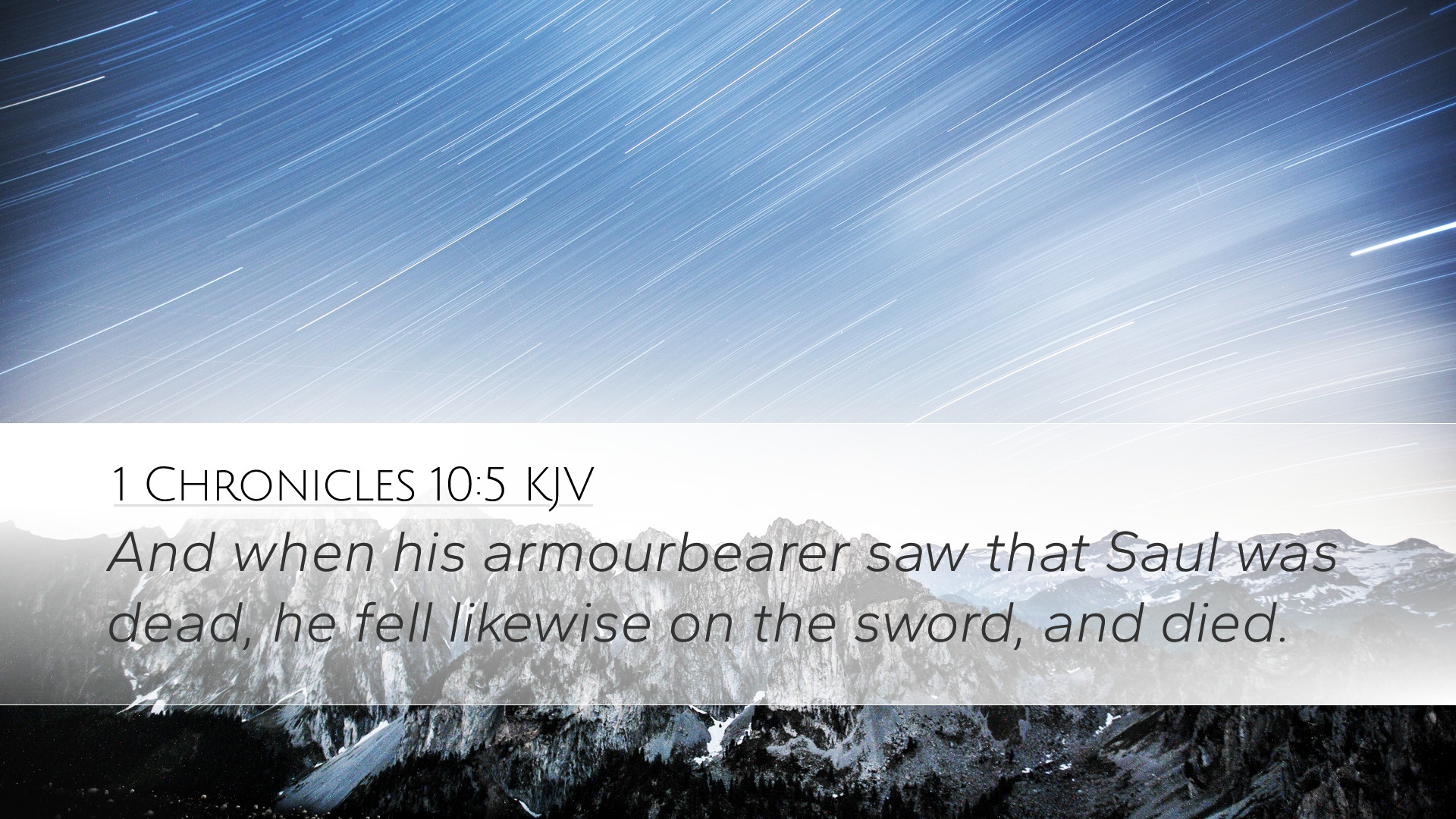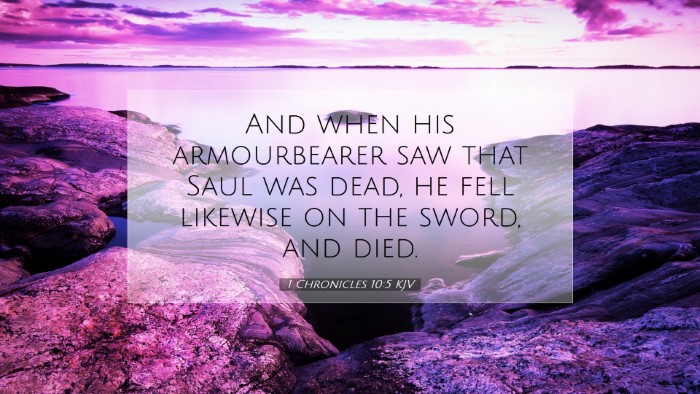Commentary on 1 Chronicles 10:5
Verse Context: 1 Chronicles 10:5 states, "And when his armor-bearer saw that Saul was dead, he fell likewise on his sword, and died." This verse marks the tragic conclusion of Saul's life, emphasizing themes of despair, duty, and the severe consequences of disobedience to God.
Historical Background
Historical Context: The book of 1 Chronicles serves as a critical recounting of Israel's history, primarily focusing on the tribe of Judah and the reign of King David. Saul's death is pivotal, as it leads to the transition of leadership from Saul to David. Understanding the context in which this event occurs can aid in grasping the weight of the armor-bearer's actions.
Theological Insights
The death of Saul and his armor-bearer captures the tragic culmination of a life marked by unfaithfulness. The following insights explore the theological themes embedded within this verse:
- Despair and Death: Saul's armor-bearer, seeing his master dead, chooses death over life. This act can be interpreted as a tragic testimony to the despair that often accompanies sin and disobedience. As Matthew Henry notes, "Despair has often been the companion of defeat."
- Sacrificial Loyalty: The action of the armor-bearer reflects profound loyalty and a sense of duty. Adam Clarke emphasizes that the armor-bearer’s decision to die shows the depths of loyalty to Saul, underlining a warrior culture where honor dictated one's choices.
- The Consequence of Leadership Failures: Saul’s life of disobedience and rejection of God's guidance led not only to his downfall but also precipitated the unnecessary demise of those loyal to him. Albert Barnes points out that "the destructive impacts of poor leadership extend to those who follow." This invites reflection on the nature of leadership within the context of divine expectations.
Practical Applications
Reflections for Readers: For pastors, students, and theologians, this passage prompts introspective questions about loyalty, leadership, and the repercussions of sin:
- Loyalty in Leadership: How do we define loyalty in our spiritual life? This verse urges leaders to ponder the nature of their influence on followers.
- Facing Spiritual Despair: The choice of the armor-bearer reflects a state of spiritual desolation, challenging the reader to consider how to provide hope to those in despair.
- Understanding Divine Judgment: Saul’s end serves as a warning about the consequences of turning away from divine instructions. What can we learn about disobedience and its consequences in our own lives?
Comparison with Other Texts
Cross-referencing with 1 Samuel 31:4-5, where Saul's death is narrated in different terms, can enrich the understanding of this narrative. The variations in the telling serve to highlight different aspects of Saul’s legacy and the nature of his end. The additional descriptions add depth to the moral and emotional weight of the armor-bearer's choice.
Conclusion
1 Chronicles 10:5 serves as a powerful commentary on loyalty, despair, and the consequences of leadership failures. By examining the text and drawing from the insights of Matthew Henry, Albert Barnes, and Adam Clarke, modern readers gain valuable wisdom about the roles of sin, duty, and the profound impact of spiritual leadership. Ultimately, this verse provides a space for reflection on the heavy burdens that accompany faithfulness in a world fraught with the challenges of disobedience and despair.


